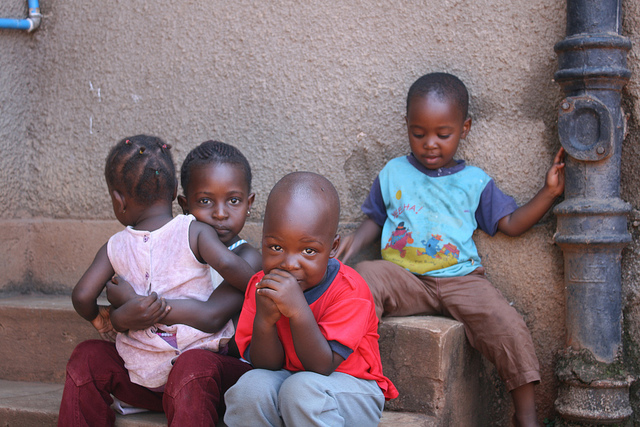"Reach them now or rescue them later?"
December 31 Children in developing countries are unable to live their best lives due to inadequate healthcare facilities, writes Musa Temidayo, 23, a Commonwealth Correspondent from Nigeria. Drawing attention to the problems faced in his country with infant health and mortality, he calls for increased resources as a matter of urgency.
Children in developing countries are unable to live their best lives due to inadequate healthcare facilities, writes Musa Temidayo, 23, a Commonwealth Correspondent from Nigeria. Drawing attention to the problems faced in his country with infant health and mortality, he calls for increased resources as a matter of urgency.
Disease has been one of humanity’s greatest enemies. Only during the last hundred years has medicine developed weapons to fight disease effectively.
Vaccines, better drugs and surgical procedures, new instruments and an understanding of sanitation and nutrition have had huge impacts on human well-being.
Despite this, many children in developing countries suffer greatly because low cost medical care is not readily available and in poor quality where available. Governments in many poor countries in sub-Saharan Africa spend only a few dollars per person on health care each year.
Trained personnel, equipment and medicines needed to provide the most basic medical care are in severe shortage.
The first five years of life are the most crucial to the physical and intellectual development of children and can determine their potential to learn and thrive for a lifetime. For young children, every single day counts.
But early childhood diseases like diarrhea, malaria and malnutrition battle against their survival. About 75 per cent of malaria deaths occur in children under five.
It is estimated that 50 percent of the population has at least one episode of malaria each year, whereas children under age five suffer from two to four attacks a year. Furthermore, malaria has remained problematic in Nigeria.
Diarrhea, cough and fever are the leading causes of childhood morbidity and mortality in sub-Saharan Africa. The World Bank (2001) reveals that Nigeria has lost 43 healthy years of life per 1,000 from diarrheal illnesses.
In Nigeria, sickle cell disease is the most common genetic disorder affecting the children. About 25 per cent of the population carry the sickle cell trait (the AS gene) and about 100,000 children born annually have a serious sickle cell disorder.
Additionally, Nigerian infants are unable to receive the maximum benefits of exclusive breastfeeding, since around 40 per cent of babies between two and three months old were already receiving supplements, which place them at risk of diarrheal infections, an underlying factor in malnutrition. For older children, the problem is lack of adequate complementary feeding.
Many of the diseases that lead to increased morbidity and mortality of children under five are largely related to the unavailability of safe water, unhygienic behaviour, poor sanitary facilities and poor housing conditions. In addition, inadequate drainage and accumulated wastewater encourage breeding of mosquitoes with increased malaria attacks – the single most significant cause of death among children.
There is a synergistic interrelationship between poverty, ignorance, poor health, malnutrition and reduced child survival, worsened by social exclusion and political marginalization. A child born to a financially deprived and less educated family is at risk of dying perinatally or within the first month of life.
The health system has been snowed under by problems of service quality, including unfriendly staff, inadequate skills, insufficient numbers of skillful workers as a result of a “brain drain,” decaying infrastructure, unavailable equipment, and a chronic drug shortage.
What is needed is urgent action and greater national priority placed on children’s issues so that significant gaps and the growing disparity in child health and survival do not reverse the progress already made.
photo credit: Espen Faugstad via photopincc
…………………………………………………………………………………………………………………
About me: I am from Nigeria, currently studying International Relations at Obafemi Awolowo University Ile-Ife Osun state. I’m also the Deputy Editor-in- Chief for the department. I love travelling and singing.I have interest in Management and Developmental Issues.
Aside from studying, I also work with I-Koncept-as a Director of Logistics, and also the Chairman of my department’s magazine. I want to be a Manager-Human Resource & Conflict Management, and also hope to serve in Nigerian foreign service.
…………………………………………………………………………………………………………………
Opinions expressed in this article are those of the author and do not necessarily represent the views of the Commonwealth Youth Programme. Articles are published in a spirit of dialogue, respect and understanding. If you disagree, why not submit a response.
To learn more about becoming a Commonwealth Correspondent please visit: http://www.yourcommonwealth.org/submit-articles/commonwealthcorrespondents/
…………………………………………………………………………………………………………………




